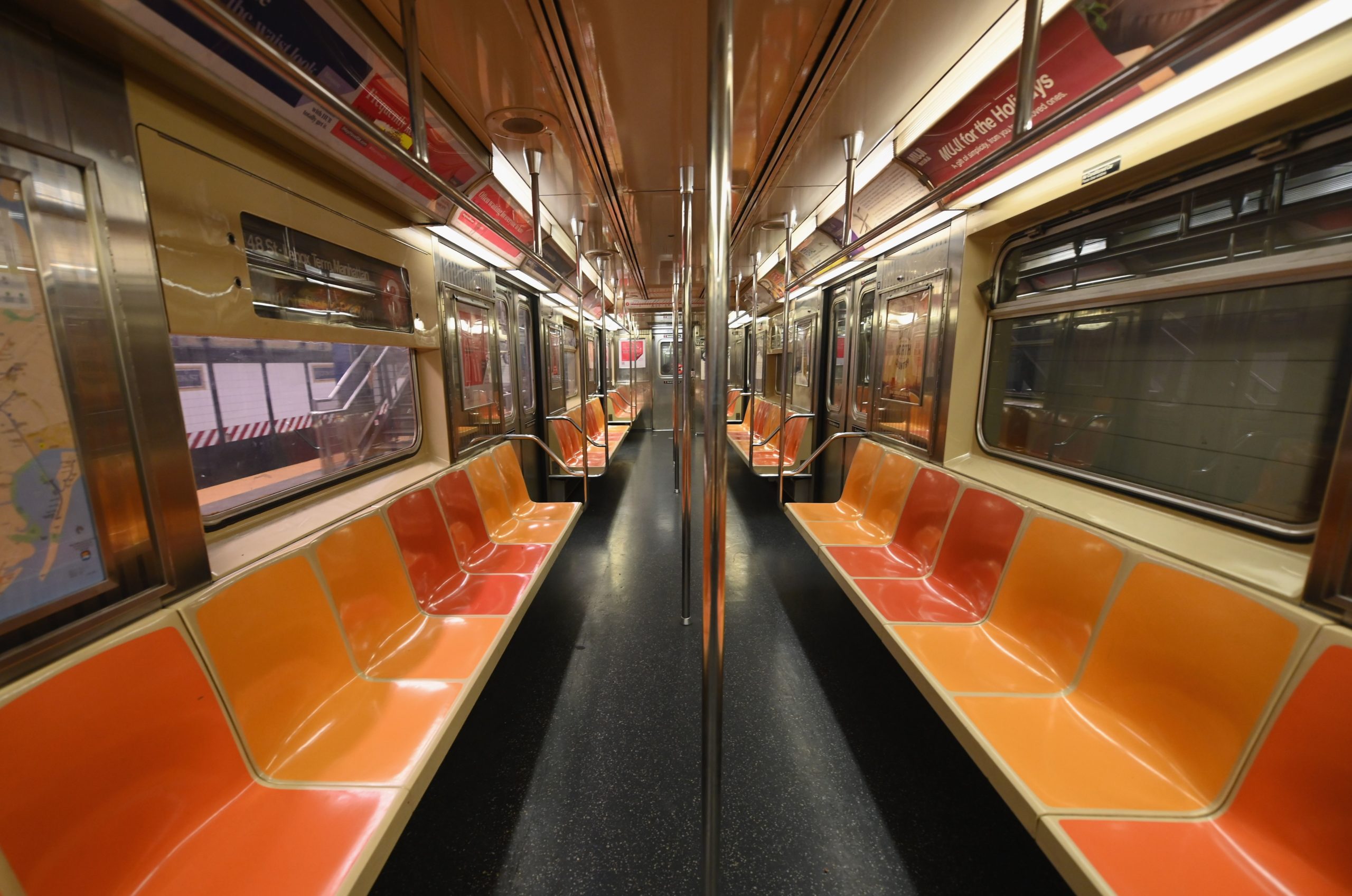Commentary
Public Transportation Should Be Free
The COVID-19 pandemic has made it impossible for us to ignore this any longer.

Public transportation is a public good. When transit is the most reliable, convenient, and affordable option, everyone benefits—transit riders pursuing economic opportunity across town, drivers enjoying unclogged streets, and city residents breathing cleaner air. And in cities like Boston, where deep racial inequities are embedded in geographic segregation across our neighborhoods, public transportation is the foundation for economic and racial justice.
But our nation has historically neglected public transportation systems, with inadequate funding leaving low-income communities, people of color, and those living with disabilities without the dependable transportation they need. Every year in Boston, Black bus riders spend 64 more hours on average on stalled buses compared to white passengers, choking off opportunities related to education, employment, personal development, and civic engagement. And these transit inequities are exacerbating environmental injustices, accelerating the climate crisis and disproportionately burdening communities of color with dangerous levels of particulate matter from tailpipe emissions.
The COVID-19 pandemic has made it impossible for us to ignore this problem any longer. Our nation’s public transit is in crisis. To secure an equitable post-pandemic recovery, we must take meaningful steps toward a fare-free transit system.
Since the start of the pandemic, transit ridership across the country decreased by nearly 70%. This decline in ridership has created a steep financial shortfall for jurisdictions that rely on fare revenue to support their operating budgets. Lower ridership and a general economic downturn have devastated the common financial support systems upon which transportation authorities depend. In Massachusetts, fares from bus and subway riders contribute only 20% of the Massachusetts Bay Transportation Authority’s revenue. Even so, when ridership decreases, budgets soon follow. Earlier this month, the MBTA board approved a package of massive service cuts, including a 20% reduction in subway service and the elimination of evening and weekend commuter rail service system-wide. These changes could result in more than 125,000 people across Greater Boston losing access to high-frequency transit, with a ripple effect on the businesses losing employees who no longer have a way to get to work.
Boston is not alone. Across the nation, cities have begun making significant cuts in service, reducing weekend and late night service, closing stations, and eliminating bus routes. In Washington, more than 20% of bus routes will be suspended. In Atlanta, more than 60% of bus routes have already closed. New York, the country’s largest transit system, may slash more than 40% of its service.
Compounding pre-existing transit inequities, this year’s service cuts have disproportionately harmed Black and brown communities. In a TransitCenter study, researchers found that service cuts in 9 major cities would result in more than two million people losing access to frequent full-day transit. More than half of those stranded would be people of color. These service cuts are particularly short-sighted when we consider that essential workers, the majority of whom are people of color, disproportionately rely on transit to get to their jobs. In Boston and around the country, health care providers, hospital workers, and others on the frontlines of the pandemic will find themselves with longer commutes and skeletal options.
It doesn’t have to be this way. During this unprecedented crisis, our federal government must allocate enough funding to support and sustain transit agencies and ensure that every person in our community has access to reliable transportation. That is why I joined Representative Ayanna Pressley and Senator Ed Markey in support of the federal Freedom to Move Act, which would invest in the public transportation system critical to low-income communities and people of color and incentivize state and local systems like the MBTA to offer fare-free transit.
The momentum toward fare-free transit is already underway. Nearly 100 cities around the world have abandoned user fees in favor of alternative funding streams that remove financial barriers for public transit riders—including a growing number of cities in the U.S. Last December, Kansas City became the first major American city to have fare-free public transit. Around the same time, Lawrence, Massachusetts did away with bus fares on three downtown routes popular with low-income residents—and saw a 20% increase in ridership as a result. This past summer, the Los Angeles Metro Rail—where fares account for only 13% of the transit system’s operating budget—rolled out an initiative to study the possibility of eliminating all rider fares. And right here in Boston, we’ve been pushing for fare-free transit to promote economic mobility, racial equity, and climate justice, already securing free MBTA passes for all 7th to 12th graders in Boston Public Schools
Cities need the support of our partners at the federal level to pursue transit justice, but unfortunately, the recent Congressional proposal for pandemic relief only allocates $15 billion for public transit agencies—less than half of what the American Public Transportation Association says is necessary just to ensure that public transit agencies can survive. Meanwhile, the Republican alternate includes zero funding for public transit. Neither option gets us anywhere near the future we need to ensure every person has access to safe, reliable and affordable transportation.
President-elect Joe Biden recently announced his intention to nominate Pete Buttigieg to lead the US Department of Transportation. Mr. Buttigieg would be stepping into this role at a time of tremendous precarity. But this critical time also presents an opportunity for bold and courageous leadership—an opportunity to meaningfully acknowledge the crucial role that public transit plays in our lives. As we enter a new year and a new administration, we must continue to advocate for federally funded zero-fare transit systems across the country, building a foundation for public health, shared prosperity, and justice for all.
Michelle Wu is member of the Boston City Council and a candidate for the Mayor of Boston.
